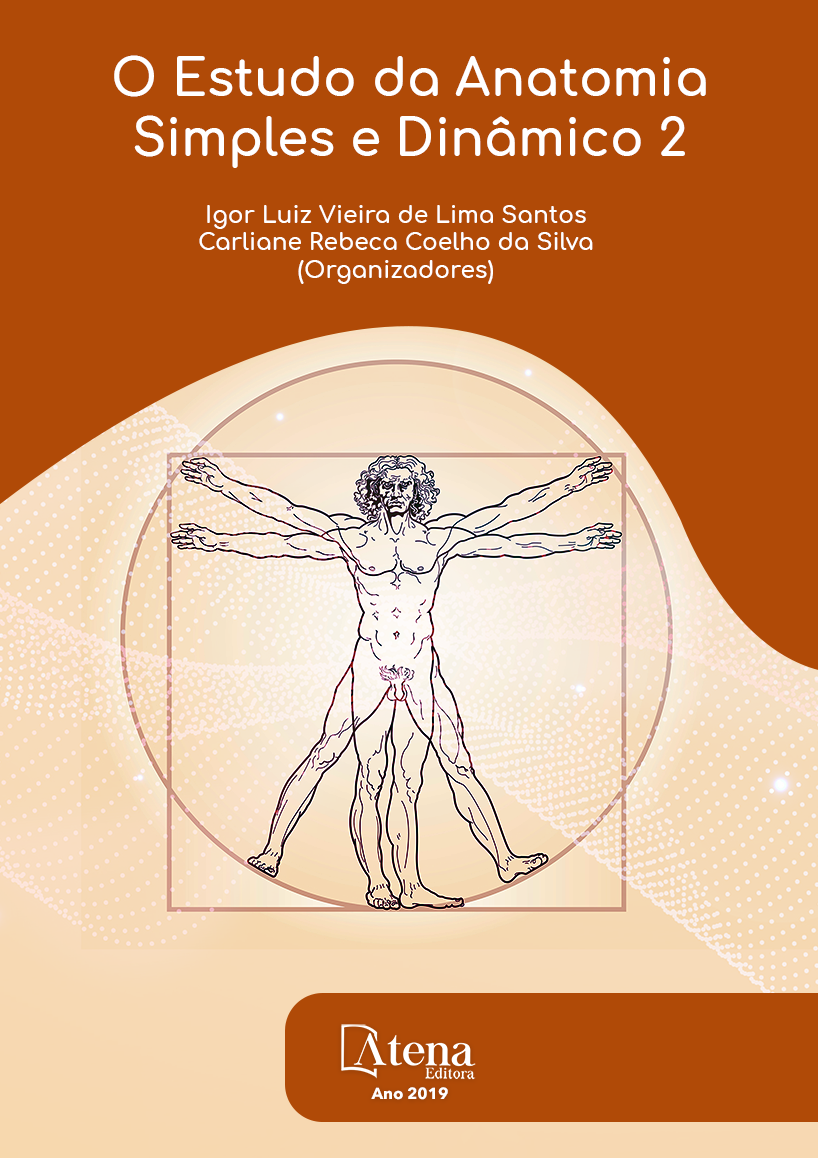
DESENVOLVIMENTO DOS MÚSCULOS PAPILARES EM CADÁVERES DO QUARTO AO NONO MÊS DE IDADE GESTACIONAL
Introdução. Os músculos papilares
estão dispostos nas cavidades ventriculares,
sendo três no ventrículo direito (anterior,
posterior e septal) e dois no ventrículo esquerdo
(anterior e posterior) e aumentam de tamanho
acentuadamente durante os dois meses finais
de gestação. Tais músculos controlam as
valvas atrioventriculares que impedem o fluxo
sanguíneo retrógrado e quando comprometidos
estão associados a insuficiência das valvas
tricúspide e mitral. Objetivo. O presente estudo
teve por objetivo quantificar o comprimento dos
músculos papilares de cadáveres humanos do
quarto ao nono mês. Método. A amostragem
foi composta por 62 corações, distribuídos
em grupos quanto ao gênero e idade. Os
corações foram extraídos por toracotomia
total, com posterior incisão paralela ao septo
interventricular, no intuito de expor os músculos
papilares, avaliados por meio de paquímetro
digital 150mm. A análise estatística foi obtida
através do teste t-student, considerando nível de
significância p<0,05. Resultados. Constatouse
aumento estatisticamente significativo em
todos os músculos papilares do coração quando
comparados os valores dos segundo e terceiro
trimestres gestacionais (p<0,03), que sugere
crescimento destes no último trimestre. Ao comparar os músculos papilares quanto
à lateralidade, observou-se diferença significativa dos músculos papilares esquerdos
em relação aos direitos (p<0,01), que indica maior força muscular, necessária para
propiciar fluxo sanguíneo adequado durante a contração do ventrículo esquerdo. Não
foram observadas diferenças intergênero dos músculos papilares nos corações nas
idades estudadas (p>0,05). Conclusão. Os resultados sugerem maior crescimento dos
músculos papilares durante as últimas doze semanas de vida intrauterina semelhante
em ambos os gêneros.
DESENVOLVIMENTO DOS MÚSCULOS PAPILARES EM CADÁVERES DO QUARTO AO NONO MÊS DE IDADE GESTACIONAL
-
DOI: 10.22533/at.ed.3311925098
-
Palavras-chave: Coração. Desenvolvimento embrionário e fetal. Músculos papilares. Valva mitral. Valva tricúspide.
-
Keywords: Heart. Embryonic and fetal development. Papillary muscles. Mitral valve. Tricuspid valve.
-
Abstract:
Introduction. The papillary muscles are found in the ventricular cavities,
three in the right ventricle (anterior, posterior and septal) and two in the left ventricle
(anterior and posterior). They increase in size during the last two months of gestation.
These muscles control the atrioventricular valves that prevent retrograde blood flow
and when impaired are associated to insufficiency of tricuspid and mitral valves.
Objective. The aim of the present study was to quantify the length of the papillary
muscles of human cadavers from the fourth to the ninth month. Methods. Sampling
was composed by 62 hearts, distributed equally among the genera. The hearts were
extracted by total thoracotomy, with a posterior incision parallel to the interventricular
septum, in order to expose the papillary muscles evaluated using a 150mm digital
pachometer. Statistical analysis was obtained through the t-student test, considering
significance level p <0.05. Results. It was found a statistically significant increase in
the values of the papillary muscles of the second when compared with those of the
third gestational trimesters (p <0.03), which suggests their growth in the last trimester.
Comparing the papillary muscles with regard to laterality, a significant difference was
observed in the left papillary muscles in relation to the right ones (p <0.01), which
indicates greater muscle strength, necessary to provide adequate blood flow during
contraction of the left ventricle. There were no between genders differences of the
papillary muscles in the hearts at the studied ages (p> 0.05). Conclusions. The results
suggest increased papillary muscle growth during the last twelve weeks of intrauterine
life, similar in both genders.
-
Número de páginas: 15
- Diogo Costa Garção
- Byanka Porto Fraga
- Rodrigo Emanuel Viana dos Santos
- Tainar Maciel Trajano Maia
- Arthur Leite Lessa
- João Victor Luz de Sousa
- Giulia Vieira Santos
- Myllena Maria Santos Santana
- João Marcos Machado de Almeida Santos
- Juliana Maria Chianca Lira


